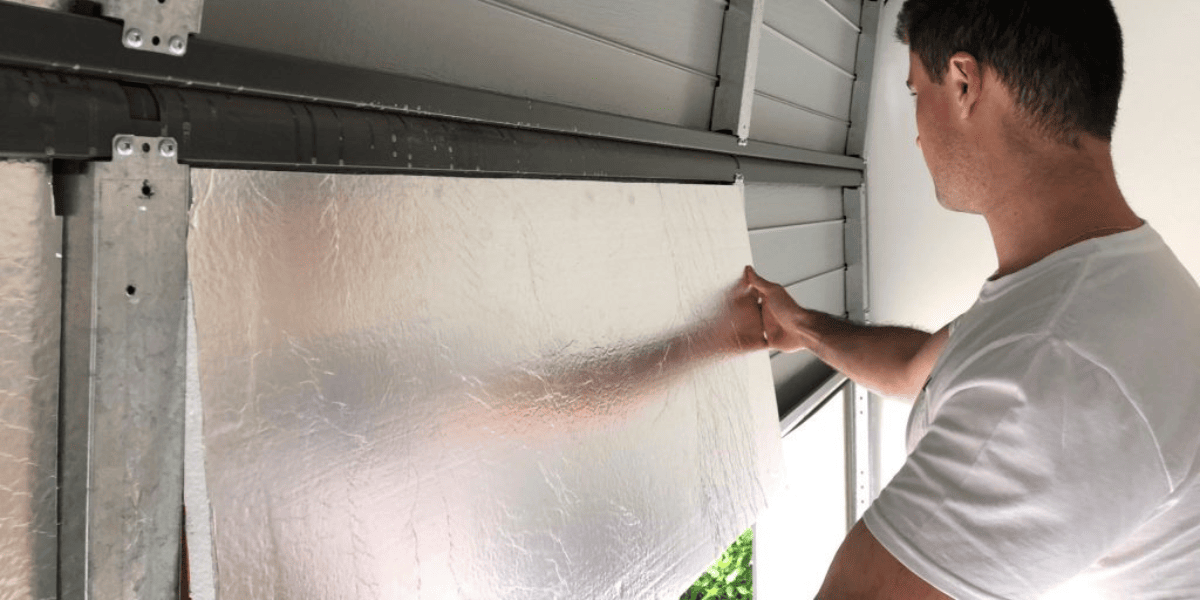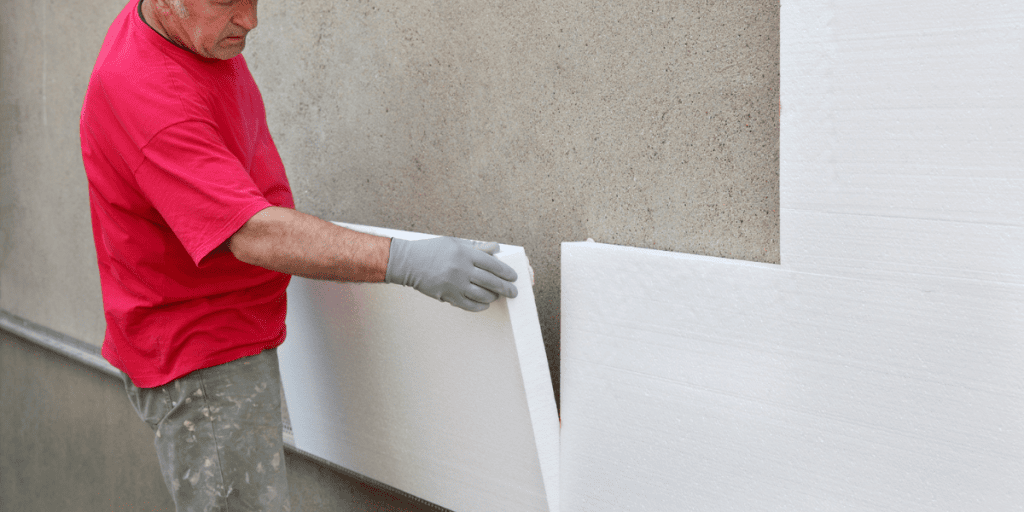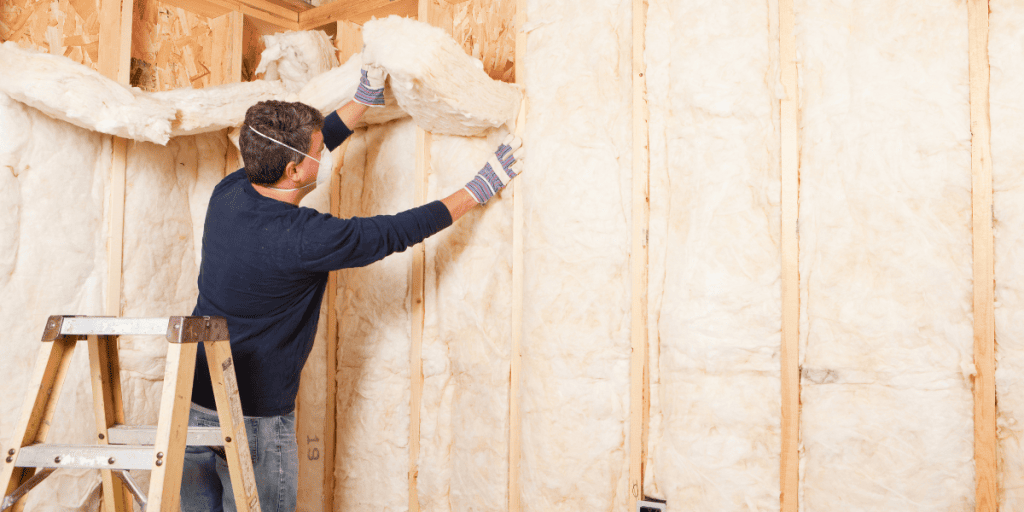Understanding Garage Door Insulation: Polyurethane and Polystyrene Compared
Insulating Your Garage: Benefits and Differences of Polyurethane and Polystyrene
The garage is an integral part of many homes, serving not only as a place to park vehicles but also as a storage area and a potential additional living space. To maintain a comfortable and energy-efficient environment inside the garage, proper insulation is crucial. An insulated garage door can significantly impact the overall temperature regulation and energy consumption of the entire house. In this blog post, we will delve into the importance of garage door insulation and compare two common insulation materials: Polyurethane and Polystyrene. By understanding the characteristics, pros, and cons of each, homeowners can make an informed decision on which type of insulation best suits their needs.
What is Polyurethane insulation?
Polyurethane insulation is a type of insulation material known for its excellent thermal efficiency and high R-value, making it a popular choice for various applications, including garage doors. It is a versatile polymer that can be produced in different forms, but in the context of insulation, it is typically found in the form of a foam.
Explanation of Polyurethane as an Insulation Material:
Polyurethane is created through a chemical reaction between polyol (a type of alcohol) and isocyanate (a type of chemical compound). This reaction forms a foam that contains tiny gas bubbles, which trap air and create a layer of insulation. The closed-cell structure of polyurethane foam prevents the escape of air and effectively slows down the transfer of heat, making it an excellent insulator.
How it is Applied to Garage Doors:
Polyurethane insulation is commonly used in garage doors to enhance their thermal performance. During the manufacturing process of sectional garage doors, the polyurethane foam is injected between the outer and inner layers of the door panels. The foam expands and fills the spaces, adhering to the layers and creating a solid, insulated structure.
Advantages of Polyurethane Insulation:
- Excellent Thermal Efficiency: Polyurethane insulation offers outstanding thermal efficiency by significantly reducing heat transfer through the garage door. This means that during hot summers, the interior of the garage remains cooler, while in cold winters, it helps retain the heat inside.
- High R-Value: The R-value measures the insulation material’s ability to resist heat flow. Polyurethane has a higher R-value compared to other common garage door insulation materials like polystyrene, meaning it provides better insulation.
- Sturdy and Durable: Polyurethane insulation is known for its durability and long-lasting properties. It is resistant to moisture, mold, and mildew, making it a suitable choice for garage doors that are exposed to varying weather conditions.
- Provides Added Structural Integrity: Apart from its insulating properties, the injection of polyurethane foam between the door panels enhances the overall strength and structural integrity of the garage door.
What is Polystyrene Insulation?
Polystyrene insulation is a type of thermal insulation material widely used in the construction industry to improve a building’s energy efficiency and reduce heat transfer. It is made from polystyrene, a synthetic polymer derived from petroleum and characterized by its rigid, closed-cell structure. This unique structure provides excellent thermal resistance and makes polystyrene insulation an effective choice for both residential and commercial applications.
Different Types:
- Expanded Polystyrene (EPS): EPS is one of the most common types of polystyrene insulation. It is produced by expanding tiny beads of polystyrene using steam, which results in a lightweight and rigid foam board. EPS insulation is known for its exceptional insulation properties, versatility, and cost-effectiveness.
- Extruded Polystyrene (XPS): XPS is another form of polystyrene insulation but is made through an extrusion process. This process involves melting polystyrene resin and adding blowing agents to form a closed-cell structure. XPS boards are more durable and moisture-resistant than EPS, making them suitable for applications in damp or high-moisture environments.
Advantages of Polystyrene Insulation:
- Cost-effective option: Polystyrene insulation, especially EPS, is relatively affordable compared to other insulation materials, making it a popular choice for budget-conscious projects without compromising on thermal performance.
- Lighter weight: Both EPS and XPS are lightweight materials, making them easier to handle during installation. This feature can lead to reduced labor costs and a quicker installation process.
- Simple DIY installation: Polystyrene insulation boards are easy to cut and shape, which allows for straightforward do-it-yourself installations. Homeowners with basic carpentry skills can tackle small insulation projects without the need for professional assistance.
Comparing R-Values and Thermal Performance
Comparing the R-values of polyurethane and polystyrene:
Polyurethane and polystyrene are two common materials used for garage door insulation. Both materials have different R-values, which directly impacts their thermal performance.
- Polyurethane: Polyurethane foam is a high-density insulation material with excellent thermal properties. It typically has a higher R-value compared to polystyrene, making it more efficient in preventing heat transfer. Polyurethane’s R-value typically ranges from R-7 to R-18 per inch of thickness, depending on the specific formulation and density.
- Polystyrene: Polystyrene is another popular choice for garage door insulation, but it generally has a lower R-value than polyurethane. Polystyrene’s R-value typically ranges from R-3.5 to R-5 per inch of thickness.
It’s important to note that the R-value of insulation materials can vary based on their thickness, density, and manufacturing processes. Therefore, when comparing different garage door insulators, it is crucial to consider not only the type of insulation material used but also the overall thickness to make an accurate comparison.
How R-values impact energy efficiency and comfort in the garage:
The R-value of garage door insulation directly affects energy efficiency and comfort within the garage space. Here’s how:
- Energy Efficiency: A garage door with higher R-value insulation can significantly reduce heat exchange between the interior and exterior of the garage. During hot summers or cold winters, a well-insulated garage door will minimize the impact of outdoor temperature fluctuations on the indoor climate, helping maintain a more stable and comfortable environment inside the garage. This results in reduced energy consumption for heating or cooling the garage, which can lead to lower utility bills.
- Comfort: Garages are often used not only as parking spaces for vehicles but also as workshops, hobby areas, or storage spaces. Proper insulation with a higher R-value provides better temperature regulation, creating a more pleasant and usable space year-round. It can help prevent extreme heat or cold from affecting the garage’s interior, making it more conducive to various activities.
Sound Insulation Properties
Garage door insulation is important in improving the sound insulation properties of a garage. It helps reduce the transmission of noise from both inside and outside the garage, making it an essential consideration for people living in noisy neighborhoods or shared living spaces. These two types of garage door insulators are offering unique soundproofing capabilities:
- Polystyrene Insulation: Polystyrene is a popular choice for garage door insulation due to its cost-effectiveness and decent soundproofing capabilities. It is typically available in two forms: expanded polystyrene (EPS) and extruded polystyrene (XPS).
- Soundproofing Capabilities: Polystyrene acts as a sound barrier due to its cellular structure. The air pockets in the material help absorb sound waves and reduce their transmission through the garage door. It effectively dampens vibrations caused by external noises, such as traffic or construction sounds, as well as noise generated inside the garage, like loud machinery or power tools.
- Reduction of Noise Transmission: When installed properly, polystyrene insulation can significantly reduce noise transmission through the garage door. It minimizes sound leakage, making it an excellent choice for homeowners looking to create a quieter and more comfortable living environment.
- Applications: Polystyrene insulation is well-suited for residential garages located in noisy neighborhoods or areas with heavy traffic. It is also beneficial in shared living spaces like apartments with attached garages, as it helps isolate garage noises from adjacent living areas.
- Polyurethane Insulation: Polyurethane is a high-performance insulation material known for its excellent thermal properties and superior soundproofing capabilities.
- Soundproofing Capabilities: Polyurethane has a denser and more robust structure compared to polystyrene. This density allows it to absorb sound waves more effectively and create a better sound barrier. The closed-cell structure of polyurethane foam provides superior sound insulation, reducing both airborne and structural noises.
- Reduction of Noise Transmission: With its superior sound absorption properties, polyurethane insulation provides enhanced noise reduction, making it an ideal choice for homeowners seeking maximum soundproofing efficiency for their garage doors. It helps keep external noise out and prevents internal noises from disturbing the surrounding areas.
- Applications: Polyurethane insulation is highly recommended for those living in areas with high noise pollution, such as busy streets, airports, or industrial zones. It’s also a great option for shared living spaces, where minimizing noise transmission between units is crucial for maintaining peace and privacy.
Both polystyrene and polyurethane insulation materials offer significant soundproofing capabilities for garage doors. However, polyurethane stands out as the more effective option, especially in areas with extreme noise conditions. Homeowners should consider their specific needs and budget when choosing the appropriate insulation type. Proper installation by a qualified professional is essential to maximize the sound insulation benefits and ensure a quieter and more comfortable living space.
Moisture Resistance and Water Vapor Permeability
Both materials have different properties when it comes to moisture resistance and water vapor permeability, which can affect their performance and long-term durability.
- Moisture Resistance in Polyurethane and Polystyrene: Polyurethane foam is known for its excellent moisture resistance. It is a closed-cell foam, which means its structure is compact and impermeable to water. The closed-cell nature of polyurethane prevents water molecules from infiltrating and accumulating within the material. This characteristic makes polyurethane an ideal choice for garage door insulation because it helps maintain its insulating properties even in humid or wet conditions.
On the other hand, polystyrene is available in two forms: expanded polystyrene (EPS) and extruded polystyrene (XPS). EPS is more porous and has open-cell structure, making it less resistant to moisture compared to polyurethane. Water can penetrate the open cells of EPS, potentially leading to a reduction in its insulation effectiveness over time. XPS, on the other hand, has a more closed-cell structure, providing better moisture resistance than EPS, but it may still be less effective in this regard compared to polyurethane.
- Handling Water Vapor and Potential Issues: Water vapor permeability is the measure of how easily water vapor can pass through a material. While polyurethane has low water vapor permeability due to its closed-cell structure, polystyrene, especially EPS, can allow some water vapor to pass through its open-cell configuration. This can be a concern, especially in areas with high humidity levels or frequent temperature changes.
If water vapor can pass through the insulation and reach the garage interior or the metal components of the garage door, it may condense and lead to moisture accumulation. This can create a conducive environment for mold and mildew growth, eventually causing unpleasant odors, health issues, and potential damage to the garage door and its insulation.
- Importance of Moisture Resistance in Preventing Mold and Mildew: Moisture resistance is crucial in preventing the growth of mold and mildew. These microorganisms thrive in damp and humid environments, and if the garage door insulation absorbs moisture, it becomes susceptible to mold and mildew infestations. Once mold starts growing within the insulation, it can spread quickly and become challenging to eradicate.
Mold and mildew not only pose health risks but also deteriorate the structural integrity of the insulation and the garage door. They can also lead to unpleasant odors and a decline in indoor air quality, making the garage an inhospitable space. Moisture-resistant insulation materials like polyurethane help mitigate these issues by preventing water vapor from entering and accumulating within the insulation, reducing the risk of mold and mildew growth.
When choosing garage door insulation materials, it’s essential to consider their moisture resistance and water vapor permeability characteristics. Polyurethane stands out as a superior choice due to its excellent moisture resistance and low water vapor permeability, helping to maintain effective insulation and preventing mold and mildew growth. Properly insulated garage doors not only improve energy efficiency but also provide a healthier and more comfortable environment inside the garage.
Longevity and Maintenance Considerations
Understanding their lifespan and maintenance requirements is crucial for ensuring their effectiveness over the long term.
Lifespan of Polyurethane and Polystyrene Insulation:
Polyurethane and polystyrene are both durable materials used for garage door insulation, but they have different lifespans and characteristics.
- Polyurethane Insulation: Polyurethane foam is known for its excellent insulating properties and durability. It typically has a longer lifespan compared to polystyrene. On average, well-installed polyurethane insulation can last up to 20 years or more with proper maintenance. This type of insulation is more expensive than polystyrene, but its superior insulation capabilities and longevity make it a popular choice for homeowners looking for a long-term solution.
- Polystyrene Insulation: Polystyrene panels are more budget-friendly than polyurethane, but they may not last as long. On average, polystyrene insulation can last around 5 to 10 years. However, the actual lifespan depends on factors like exposure to extreme weather conditions, physical impact, and the quality of installation.
Maintenance Requirements for Each Type of Insulation
Proper maintenance is vital to extend the life and effectiveness of garage door insulation, regardless of the material used. Here are some specific maintenance considerations for both polyurethane and polystyrene insulation:
Polyurethane Insulation Maintenance:
- Check for Cracks and Gaps: Regularly inspect the polyurethane insulation for any cracks or gaps that may have developed due to wear and tear or physical damage.
- Sealing and Patching: If you find any cracks or gaps, promptly seal or patch them using appropriate sealants or adhesives designed for garage door insulation.
- Protect from Moisture: Prevent moisture buildup on the insulation by ensuring the garage is properly ventilated and by fixing any leaks in the roof or walls.
- Avoid Impact: Avoid hitting or putting pressure on the insulation to prevent damage.
Polystyrene Insulation Maintenance:
- Visual Inspection: Regularly inspect the polystyrene panels for signs of wear, damage, or sagging.
- Reinforcement: If you notice any sagging or structural issues, consider reinforcing the panels with additional support or replacing damaged panels.
- Cleaning: Clean the surface of the polystyrene panels occasionally to remove dust, dirt, and debris that may affect its insulating properties.
Prolonging the Effectiveness of Garage Door Insulation through Regular Upkeep:
Regardless of the type of insulation, regular upkeep is essential to maintain its effectiveness over time. Here are some general tips to prolong the insulation’s effectiveness:
- Annual Inspection: Conduct an annual inspection of the garage door insulation to identify any issues early on and address them promptly.
- Weather Stripping: Check and replace weather stripping around the garage door to ensure a tight seal when the door is closed, preventing air leaks and heat transfer.
- Proper Garage Ventilation: Ensure proper ventilation in the garage to prevent excessive heat and moisture buildup, which can damage the insulation.
- Protect from Physical Damage: Avoid hitting or putting pressure on the insulation, and be mindful when moving items in and out of the garage.
- Professional Maintenance: Consider hiring a professional garage door technician to perform regular maintenance and tune-ups to keep the door and insulation in optimal condition.
The choice between polyurethane and polystyrene insulation depends on various factors, including budget, insulation requirements, and long-term expectations. Both types can provide efficient insulation if properly maintained. Regular upkeep and periodic inspections are crucial to extending the lifespan and effectiveness of garage door insulation, ensuring that your garage remains a comfortable and functional space for many years to come.
Frequently Asked Questions
What is the importance of insulating a garage door?
A: Insulating a garage door can significantly improve the energy efficiency of your home. It helps regulate the temperature inside the garage, preventing heat loss during the winter and heat gain during the summer. Insulation also reduces noise transmission, increases the durability of the door, and provides a more comfortable environment for any activities conducted in the garage.
What are the main types of garage door insulation available?
A: The two most common types of garage door insulation are Polyurethane and Polystyrene. Both materials are effective insulators, but they have distinct differences in terms of performance and characteristics.
What is Polyurethane insulation?
A: Polyurethane is a dense, high-quality foam insulation material. It is injected as a liquid into the garage door panels, where it expands and adheres to the interior surfaces, forming a solid and continuous insulation layer. Polyurethane offers superior insulation properties, high R-values (thermal resistance), and better structural rigidity compared to Polystyrene.
What is Polystyrene insulation?
A: Polystyrene, also known as Styrofoam, is a lightweight and less expensive type of insulation. It comes in the form of rigid panels that are cut to fit inside the garage door sections. While it provides good insulation, it generally has a lower R-value compared to Polyurethane.
Which one is more energy-efficient, Polyurethane, or Polystyrene?
A: Polyurethane insulation offers higher energy efficiency due to its superior R-value and ability to provide a more airtight seal. It has a higher insulating capacity per inch of thickness compared to Polystyrene, making it more effective in regulating temperature and reducing energy costs.
Conclusion:
We have explored the vital aspects of garage door insulation and its significant impact on your home. We began by understanding the importance of insulation, not only for temperature control but also for energy efficiency and noise reduction. Through the course of this blog post, we highlighted the main points that homeowners should consider when selecting the right garage door insulation.



